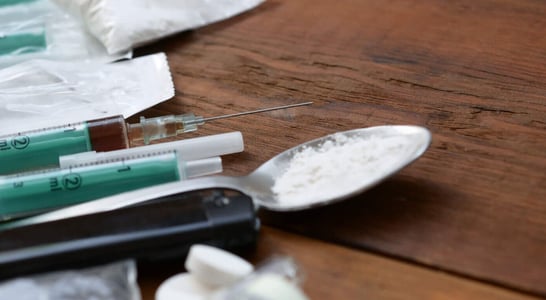
Poet’s Day
Connect with your inner poet by writing some poetry yourself, or read the beautiful words of poets of all eras, from the Ancient Greeks to contemporary poets.
Poetry… We hear the term bandied about all the time, and there isn’t a one of us that avoided writing some in our younger days. Whether that poetry was written by the dictate of our instructors in school, or driven by hormone-fueled teenage angst, there was a portfolio of our work available to embarrass or edify us. Poetry Day honors this art, and below, we will tell you everything you need to know about it.
Learn about Poetry Day
Poetry Day is all about paying tribute to the great art of poetry. It’s about embracing poetry, enjoying it, and even creating it. Whether you prefer to read poetry from an acclaimed writer or you like to be the creative one; it doesn’t matter. It is about celebrating this literary form in every way. After all, you do not need to have a degree to be a poet!
But the question has to be asked, what is poetry really? There seems to be so many varieties of it, and in a world containing hundreds of countries and thousands of cultures, it’s the one thing that is nearly universal. So what is poetry, let’s take a look shall we?
History of Poetry
At its most base description, Poetry is a form of writing that uses the aesthetic and rhythmic qualities of a language, combined with simile and metaphor, to bring out meanings deeper than the mere definition of the words.
The history of poetry is lengthy, traceable in written form as far back as the Sumerian Epic of Gilgamesh, and has been used as a memetic method of passing down stories and mythologies throughout cultures for countless ages before that. The question of “What is Poetry?” has been a question that has vexed philosophers for time out of mind, with Aristotle writing a book aptly named Poetics, trying to define it.
However he was only able to address a small portion of what poetry is, and how it is used in rhetoric, song, drama, and comedy. One of the greatest poets of all time heralded from England, along the Avon river in the aptly named Stratford-upon-Avon in south Warwickshire, England.
This, of course, was the man who was to come to be known as ‘The Bard’, William Shakespeare. His body of work is the foundation for the study of poetry in college’s throughout the world, and is considered to be the absolute pinnacle of the art by many.
Such was the love of ‘The Bard’s works, that during the time of the Victorian’s, the term ‘Bardolotry‘ was used to describe their love of his works. Perhaps the most important lesson to take from the Bards rise to prominence in the world of Poetry and literature lay in the time it took for his works to become legend.
It wasn’t until the 19th Century, hundreds of years after his death, that Shakespeare became the legend we know today.
History of Poetry Day
Poetry Day was founded by William Sieghart in 1994. He is a British philanthropist, entrepreneur, and publisher. He also founded Forward Prizes for Poetry. This is a major award ceremony for poetry, which is presented once a year. He said the following about the occasion:
“There are millions of talented poets out there and it’s about time they got some recognition for their work. They shouldn’t be embarrassed about reading their work out aloud. I want people to read poetry on the bus on their way to work, in the street, in school and in the pub.”
And isn’t this true, there are so many people who are talented, yet they don’t feel like they have a voice or they are scared to show off their true poetry skills. So, let’s encourage everyone to do so!
How to celebrate Poet’s Day
Poet’s day is dedicated to the long history of poetry in the world, and most especially to those who fill our world with the passion and wonder that flows from the tip of their pens.
Each form of poetry is unique to the author, as poetry is inevitably born from their feelings and personal experiences, and those experiences are not replicated even in another sharing them. If you’ve ever written poetry in your life, and we all know you have, on Poet’s day it’s time to pick up that pen again and let your inner self spill upon the page like blood upon a dance floor.
Take up the pen, and write what’s in your heart today! Whether you are describing a sunny morning in a garden, the tumultuous rumble of people on a city street, or the final struggling moments of a dying robin in the lawn, bring the world through your eyes to the page.
The best celebration of Poet’s Day is to compose works of poetic art, and compile them for submission to one of the hundreds of amateur poetry publication in the world today, who knows, a hundred years from now you may be considered one of the greats!
If you are wondering whether or not you have created a masterpiece, there are some signs that you should look out for. A good poem is one that tackles a big idea and uses the best form for ideas to be conveyed. Other indicators of a good poem include when your reader has a strong emotional reaction. You also need to make sure that you have not given way too much or too little. You also need to use powerful images. After all, a good poem is a symptom of the person’s attempts to make sense of the wonderful world we live in.
Of course, you don’t have to write poems yourself; you can spend the day reading some great poetry as well. Famous poets that are well worth looking into include Maya Angelou, Robert Frost, John Keats, and William Wordsworth. A good place to start is with William Shakespeare. Today, thanks to the Internet, it is easier than ever to get access to poems. You don’t have to search via the author either. You can search based on a theme such as love. If you find a poem that really interests you, why not share it with your followers on social media in order to get the word out about Poet’s Day?
If you are able to, though, it is a good idea to support your local library. There is something special about heading to a library, looking through the different books, and finding a quiet corner to read one. There are also different groups that have been set-up to help libraries, and you may want to enquire about helping one of these groups in order to pay tribute to Poet’s Day.
Also on ...
View all holidaysBurger Day
A juicy, flavorful patty nestled between soft, toasted buns, adorned with melted cheese, crispy bacon, and a tangy sauce.
National Spumoni Day
Enjoy some Spumoni, a layered Italian ice cream with cream, fruit, and nuts. For the authentic experience, don’t use a spoon; you have to slice it.








